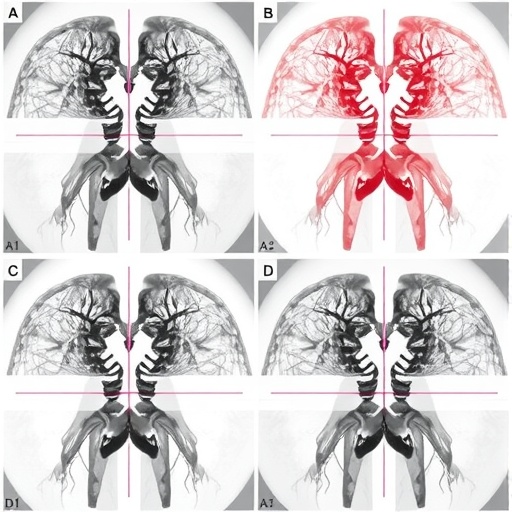PROTECT YOUR DNA WITH QUANTUM TECHNOLOGY
Orgo-Life the new way to the future Advertising by AdpathwayIn a groundbreaking study published in BMC Pediatrics, researchers from Southeastern China have revealed crucial insights into the epidemiology and genetics of fatty acid oxidation disorders (FAODs) through a comprehensive newborn screening initiative. This study sheds light on the prevalence and genetic underpinnings of these critical metabolic conditions, marking a significant stride in public health and preventive medicine. Fatty acid oxidation disorders are inborn errors of metabolism, where the body fails to oxidize fatty acids properly, leading to severe health consequences if left undiagnosed and untreated.
The implications of the research are monumental, as early detection can lead to better management and outcomes for affected infants. In Southeast China, the prevalence of FAODs demonstrated notable variability, necessitating targeted strategies for screening and intervention. The study involved a meticulous analysis of blood samples from a substantial number of newborns, allowing the researchers to capture a comprehensive overview of the conditions’ genetic diversity and epidemiological trends.
One of the critical findings of this research was the identification of specific genetic variants prevalent in the local population that are associated with FAODs. The researchers employed advanced genetic sequencing techniques, which unveiled mutations that have not been widely documented in other demographics. This provides a new understanding of FAODs that could influence not only local clinical practices but also global approaches to screening and management.
Moreover, the significance of genetic counseling emerged as a crucial component of managing infants diagnosed with FAODs. Families face myriad decisions and challenges when dealing with a life-altering diagnosis, and informed counseling can help parents make educated choices regarding treatment options and future family planning. This aspect of the study emphasizes the importance of integrating genetic education into the healthcare systems, contributing to an overall strategy that encourages both prevention and treatment.
The methodology employed by Zhang and colleagues underscores the power of collaboration in scientific research. By establishing partnerships with local hospitals, the research team was able to access a diverse patient population, ensuring that their findings would have a broad applicability. This collective effort not only enhances the robustness of the data collected but also fosters a community engagement model that is vital in health initiatives.
In response to the findings, clinical recommendations have been proposed, aimed at improving the efficacy of newborn screening programs across the region. Such recommendations advocate for the inclusion of genetic markers in routine screening processes, enabling healthcare professionals to swiftly identify at-risk infants. Timely intervention is critical; studies show that untreated FAODs can lead to serious health issues, including developmental delays and life-threatening metabolic crises.
As the research community continues to grapple with the complexities of FAODs, it is essential to emphasize the collaborative nature of this study. Researchers, geneticists, pediatricians, and public health officials collectively contribute to creating a comprehensive understanding of these disorders. This integration of perspectives fuels advancements in research that bring about innovative solutions for pressing health issues faced by infants.
Healthcare systems worldwide should take note of the findings presented by Zhang et al. The implications for newborn screening protocols are particularly vital for regions with varying genetic backgrounds and prevalence rates of metabolic disorders. A one-size-fits-all approach may be ineffective; instead, tailored screening programs must accommodate local genetic profiles to enhance detection and treatment of FAODs.
The digital age has provided researchers with a wealth of data that can inform future studies and healthcare policies. The application of big data analytics and machine learning algorithms in studying genetic disorders presents a promising avenue for enhancing understanding and developing more precise diagnostic tools. This could redefine how metabolic disorders are detected and treated, potentially saving countless lives in the process.
Furthermore, the findings from this research reverberate beyond Southeast China, posing relevant questions for international health organizations. Global health initiatives aimed at reducing infant mortality rates must consider the role of genetic disorders, prompting a reevaluation of existing screening practices on a larger scale. The impact of early intervention can change the trajectory of many lives, making it a priority for policymakers worldwide.
In conjunction with the growing recognition of FAODs, public awareness campaigns must also take precedence. Educating parents and caregivers about the signs and symptoms of metabolic disorders can facilitate earlier consultations with healthcare professionals, thereby increasing the rate of diagnoses. Community outreach and education, in tandem with research findings, can empower families to seek timely medical support.
As the study paves the way for novel recommendations and practices, its influence is expected to shape the future of newborn screening in many regions. Empirical evidence gathered in large-scale studies not only informs clinical practice but also guides policy decisions that could optimize health outcomes across various demographics.
In conclusion, the research carried out by Zhang, Li, Ye, and their team signifies a monumental shift in understanding and managing fatty acid oxidation disorders. By integrating advanced genetic insights with practical public health strategies, the study highlights the potential for improving the lives of infants affected by these disorders. The comprehensive findings will undoubtedly drive future research efforts, inspire innovative screening protocols, and enhance genetic counseling practices worldwide.
As we advance in breaking down the barriers surrounding genetic metabolic disorders, it is paramount that the research community maintains momentum. Future endeavors will be crucial in ensuring that developments in newborn screening evolve alongside the latest scientific understanding. The collaboration fostered through this research sets a precedent for tackling future challenges in public health, with hope that these efforts ultimately culminate in healthier futures for countless infants.
Subject of Research: Fatty Acid Oxidation Disorders
Article Title: Newborn Screening for Fatty Acid Oxidation Disorders: Epidemiological and Genetic Findings in Southeastern China
Article References: Zhang, S., Li, X., Ye, S. et al. Newborn screening for fatty acid oxidation disorders: epidemiological and genetic findings in Southeastern China. BMC Pediatr 25, 863 (2025). https://doi.org/10.1186/s12887-025-06250-y
Image Credits: AI Generated
DOI: 10.1186/s12887-025-06250-y
Keywords: Fatty Acid Oxidation Disorders, Newborn Screening, Genetic Research, Epidemiology, Public Health, Metabolic Disorders, Genetic Counseling, Healthcare Policy.
Tags: advanced genetic sequencing techniquesearly detection of metabolic conditionsepidemiology of metabolic disordersfatty acid oxidation disordersgenetic diversity in newbornsgenetic variants in FAODshealth outcomes for infantsinborn errors of metabolismnewborn screening initiativespreventive medicine in pediatricspublic health in Southeastern Chinatargeted screening strategies


 5 hours ago
6
5 hours ago
6





















 English (US) ·
English (US) ·  French (CA) ·
French (CA) ·